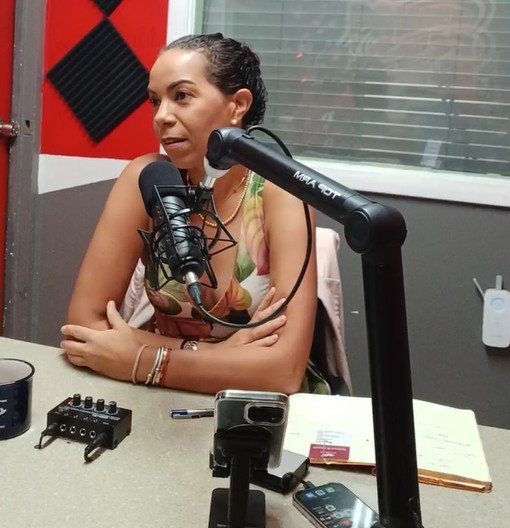 PHILIPSBURG:---Sint Maarten Member of Parliament, Ludmilla de Weever, has raised serious concerns about the recent controversy surrounding the appointment of a new chairman for the Supervisory Board of the Central Bank of Curaçao and Sint Maarten (CBCS). She suggests the public uproar may be a deliberate distraction—a smokescreen to hide potentially "nefarious" plans for one of Sint Maarten's most valuable assets: Mullet Bay.
PHILIPSBURG:---Sint Maarten Member of Parliament, Ludmilla de Weever, has raised serious concerns about the recent controversy surrounding the appointment of a new chairman for the Supervisory Board of the Central Bank of Curaçao and Sint Maarten (CBCS). She suggests the public uproar may be a deliberate distraction—a smokescreen to hide potentially "nefarious" plans for one of Sint Maarten's most valuable assets: Mullet Bay.
In an interview this morning, MP de Weever connected the dots between the highly politicized appointment process and the unresolved issues stemming from the government's bailout of the private insurance company, Ennia. A significant portion of Ennia's assets is tied to Mullet Bay, and de Weever fears that the intense focus on the CBCS chairmanship is diverting attention from what could be happening with this prime real estate behind the scenes.
"I feel like this whole conversation was a way to distract us from a lot of stuff that could potentially go wrong with Mullet Bay," de Weever stated, expressing a gut feeling that something isn't right. "If there are plans to sell Mullet Bay and cut it up to make money for this country, I don't think that's the right way to go about it."
Her apprehension stems from a history of financial decisions she found questionable. De Weever was a vocal opponent of the Ennia deal, refusing to support a 30-year loan to bail out a private company where Sint Maarten held less than 7% of the debt. Her background in finance guided her decision, as she was not provided with the necessary justification or transparency to approve the bailout. "I'm not going to give you money if I don't know what I'm giving you money for," she explained, drawing a parallel to the current situation.
The MP believes the same lack of transparency plagues the CBCS appointment. The process, she argues, should be straightforward and followed meticulously. However, the controversy has turned it into a highly political affair, creating what she described using the "Streisand effect"—an attempt to suppress information that inadvertently leads to it gaining widespread public attention.
"This is one of those scenarios where I don't think anyone expected this to happen," she remarked. "It's like when something happens and you didn't mean for it to be so popular, and then it lived a life of its own."
For de Weever, the issue is not about the individual candidate but about the integrity of the process and the larger picture at stake. She warned that putting the wrong people in key positions, without the necessary expertise or commitment to public interest, jeopardizes the
country's financial stability. She pointed to the successful turnaround of Winair as a prime example of what can be achieved with a professional, business-minded board that operates with minimal political influence.
The danger, she warns, is that a lack of vigilance could lead to irreversible consequences. If the focus remains solely on the political drama of the appointment, sinister plans to "divvy it up and sell it so that we can make money for our country" could proceed unchecked.
"There's so much shadiness, nefariousness around the whole deal that I kind of feel like there are some plans happening somewhere in the background," de Weever asserted. She is calling on the people of Sint Maarten to look beyond the immediate headlines and question what might be happening behind the curtain. "I don't want Sint Maarten people to be fooled again," she concluded, pledging to keep applying pressure and asking the tough questions to protect the public's interests in Mullet Bay and ensure accountability within the nation's most critical financial institutions.